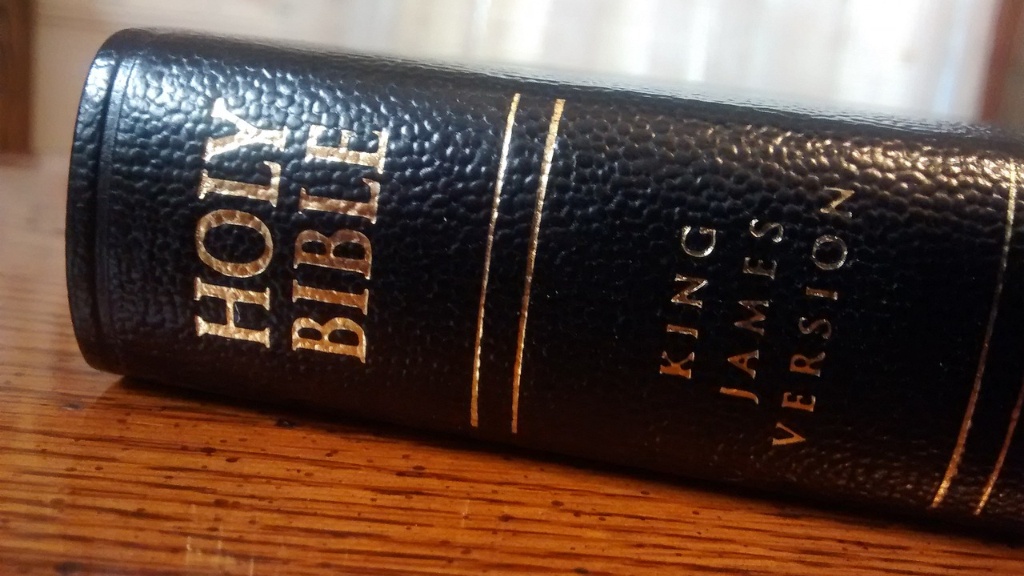The biblical story of Ruth is one of the most beloved stories in the Bible: the story of love and God’s mercy, of loyalty and courage, as well as an incredibly inspiring example of faith. This iconic story was written in the book of Ruth, found in the Hebrew Bible (Old Testament) in the Bible.
Set in ancient Israel during the time of the judges, the story revolves around Ruth, a young Moabite woman who, despite her nationality, places her trust in God, dedicates her loyalty to her mother-in-law, Naomi, and ultimately, through her faithfulness, finds security and success.
The story begins with Naomi, a woman of Bethlehem in Judah, leaving her hometown with her husband and two sons. They settle in Moab, where after some time the two sons eventually marry Moabite women. Sadly, the two men, Elimelech and his son Mahlon, pass away, leaving Naomi and her two daughters-in-law, Orpah and Ruth, widowed.
Naomi then decides to return to Bethlehem, and this is where Ruth’s faith and loyalty are revealed. Ruth swears to stay by her mother-in-law’s side and at her bidding, says the famous words; “Where you go, I will go; where you stay, I will stay. Your people will be my people, and your God will be my God.”
The two women return to Bethlehem with the intention of Naomi finding a family member who is willing to take care of them, as there is no social security to protect them from destitution. Their intention is met with Ruth finding support in Boaz, a wealthy relative of Naomi’s husband.
Boaz is a kind and generous man who is smitten with Ruth, and in turn grants her public appeal to Naomi after being greeted properly by an assembly of 10 witnesses.
A festive marriage eventually occurs between Boaz and Ruth, which leads to the birth of a son. This son, Obed, becomes the grandfather of King David and an ancestor of Jesus himself. This familial line of descent is an important part of Ruth’s story.
Messages
Ruth’s story serves as a reminder of the importance of loyalty. Ruth’s loyalty to God and to her mother-in-law does not go unnoticed or unrewarded. Her story also serves as an example of someone using faith, rather than fear or apathy, to overcome obstacles in their lives.
Ruth’s loyal love with Boaz is an example of God’s unconditional mercy, love, and grace and is a powerful message of redemption. God is described as an initiator of love, reaching out to the brokenhearted, encouraging people not to give up, and allowing them to experience peace and inclusion despite the circumstances.
Faith is another important theme in Ruth’s story. Not only is Ruth’s faith tested and strengthened throughout the story, but it also serves as a lesson and a reminder to have faith in God. This is encapsulated in the famous promise that Ruth makes to Naomi; “Your people will be my people, and your God will be my God.”
Meaning and Purpose
The purpose of Ruth’s story is reiterated in the later prophetic passage; “You too, Bethlehem will be too small for you for many of you will come from it. I am the one who will bring this about, declares your God.” Here, it is implied that Ruth’s loyalty and faith will result in the glorification of God.
Ruth’s story serves as a reminder that even in difficult circumstances, blessings do follow faithful acts of obedience. That through faith, hope and courage, we can be enveloped in God’s mercy, love and grace just like Ruth.
The story of Ruth also serves as an example of courage, resilience, and selfless love, as well as a powerful reminder for all of us to use faith rather than fear to fight hardship. As this story still speaks to us today, we can take away the lessons of redemption, mercy, and faith from God, which are the themes that define and shape Ruth’s story.
Ruth in Judaism
Ruth’s story holds an important place in Jewish culture and is mentioned in Jewish prayers and rituals. In modern times, Jews celebrate Shavuot, known as the “Feast of Weeks” to commemorate the giving of the Torah at Mount Sinai. During this festival, Jews read the story of Ruth in the synagogue as a reminder of hope and renewal and as a sign of repleteness.
Ruth’s story is also associated with a popular traditional greeting used amongst Jews; “May your home be blessed like the house of Boaz and Ruth.” This is a celebratory phrase used to wish someone good luck, and is derived from the blessing that Boaz gave to Ruth and Naomi at the end of their story.
Ruth’s story serves as an example to live according to the teachings of Judaism, and many Jews look to Ruth as an inspiration for how to live their lives with unconditional love, faith, and resilience.
Ruth’s Significance in Christianity
Ruth’s legacy is one that is celebrated and remembered by Christians as well as Jews. Ruth is considered by many as an important ancestor of Jesus Christ himself, being a descendant of Boaz and Ruth and thus part of what is commonly known as the Davidic line.
In Christianity, the figure of Ruth has been interpreted as a spiritual type of the Church. It has been said that Ruth’s devotion to Naomi prefigures the Church’s devotion to Christ, and that Ruth gave her life to a new people and faith in the same way that a Christian believer gives his/her life and allegiance to Jesus.
Ruth’s humility, trust, obedience and her commitment to her mother-in-law, which also included great respect for God, are important reminders of the faithful and humble disposition that Christians should have as they follow Christ.
Novels and Cultural Representations
Ruth’s story has been mentioned in the works of many poets and authors, from the 17th century English poet John Donne who wrote a set of poems about Ruth’s character, to the best-selling modern-day novelist, Jane Smiley, and her Pulitzer-winning novel, The Age of Grief.
Ruth’s story has been told in various forms of cultural productions, including film, television, and theater. The story of Ruth has been the source material and inspiration behind many classic and modern musicals, operas, and ballets, and several movies and TV movies have been made about the story, making it a popular cultural representation.
Ruth’s story is one that is frequently interpreted, re-told and shared, making her one of the most famous characters in the Bible and in history.
Influence
Ruth’s influence and legacy can be seen in people’s lives today. There are several organizations, foundations and charities dedicated to her ideals, such as the Ruth Institute, a global non-profit with a mission to “defend the family and build a civilization of love”.
Additionally, there are various social programs and initiatives, like the “Ruth Project”, which works with young women in Africa and Latin America to empower them to become leaders in their communities.
Ultimately, Ruth serves as an enduring source of inspiration and as a source of comfort and hope that there are good people in the world who inspire us to strive for a better future.
Symbolism
Ruth’s story is made up of a number of themes, but they all boil down to one thing – faith in God. It is the reminder that God is always with us, even in the most difficult of times, and that He will reward our faith, loyalty and commitment.
The symbolism of Ruth’s story for Christians is the importance of putting our faith and trust in God. This can be taken from Ruth’s example of perseverance, resilience and faithfulness throughout her story and the consequent blessings she receives.
Additionally, Ruth’s story is also symbolic of the power of love and acts of kindness, as well as the power of redemption. Even though a person may have done wrong, they can still be welcomed into a new community that embraces and loves them.
Finally, Ruth is a role model and an inspiring example of someone showing faith and courage in the face of adversity. Through the lessons and ideals found in her story, Ruth reminds us to have faith in God, trust in His mercy and love, and to have courage despite hard times.





